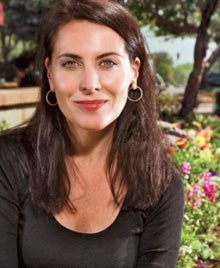New Ways of Seeing
Opinions expressed by Entrepreneur contributors are their own.
 In some of this country’s more economically blighted regions, something hopeful is happening. Graffiti-covered warehouses and abandoned buildings are giving way to artistic callings and architectural rebirth. Industrial and agricultural places not generally perceived as creative communities–places like Omaha and Chattanooga–are showing signs of cultural and economic revitalization.
In some of this country’s more economically blighted regions, something hopeful is happening. Graffiti-covered warehouses and abandoned buildings are giving way to artistic callings and architectural rebirth. Industrial and agricultural places not generally perceived as creative communities–places like Omaha and Chattanooga–are showing signs of cultural and economic revitalization.
Creative communities–those places and cultures that embrace and champion right-brained endeavors–have always been Meccas for successful people and businesses. San Francisco, Manhattan, Austin, Boulder–all of these are places where self-expression is not only welcome, but expected. The explosion of the “Keep [insert city name here] Weird” bumper stickers that decorate the collective bumpers (no doubt on the backs of thousands of Priuses) in these so-called creative communities is further proof that creativity is an important part of their identities. Even though the notion of “Keep Omaha Weird” stickers on the bumpers of that town’s myriad Ford F-150s may seem otherworldly, the point is that interesting and creative things are happening in unexpected places. And all that momentum is having a positive impact on our economy.
Artonomics–the loose economic theory of arts-driven economies–got our attention a while ago while we were on the ground in New Orleans reporting on the city’s galvanized efforts to revitalize the economy following the devastation of Hurricane Katrina. Perhaps no other city in this country has embraced creativity and entrepreneurship quite like New Orleans. Through all the turmoil, this city has emerged as a better, more confident version of itself. It is undeniable (though not totally measurable) that creativity and the arts give communities a sense of self and can be a force of economics. But, unlike Omaha and Chattanooga, New Orleans has the distinction of a surplus of government money still floating around. And money, of course, is the key for driving growth–and creative endeavors.
To dig into the idea of creative communities as an economic force, we asked NPR economist Adam Davidson to look at the impact of creative economies on the national economy. His report reveals that while creativity and the economy are deeply connected at this point, it is also hard–if not impossible–to reveal a road map for communities to follow. What works in New Orleans probably won’t work in Detroit, but the idea of luring creatives to an economy is worth bearing out.
Creativity spans all business disciplines, politics and governments. And clearly you don’t need a canvas and oils to create a masterpiece. Leaders who think creatively–and outside the lines–can have as much impact and create as much of a renaissance as Michelangelo.

Amy C. Cosper,
Editor in chief
Follow me on Twitter, @EntMagazineAmy
 In some of this country’s more economically blighted regions, something hopeful is happening. Graffiti-covered warehouses and abandoned buildings are giving way to artistic callings and architectural rebirth. Industrial and agricultural places not generally perceived as creative communities–places like Omaha and Chattanooga–are showing signs of cultural and economic revitalization.
In some of this country’s more economically blighted regions, something hopeful is happening. Graffiti-covered warehouses and abandoned buildings are giving way to artistic callings and architectural rebirth. Industrial and agricultural places not generally perceived as creative communities–places like Omaha and Chattanooga–are showing signs of cultural and economic revitalization.
Creative communities–those places and cultures that embrace and champion right-brained endeavors–have always been Meccas for successful people and businesses. San Francisco, Manhattan, Austin, Boulder–all of these are places where self-expression is not only welcome, but expected. The explosion of the “Keep [insert city name here] Weird” bumper stickers that decorate the collective bumpers (no doubt on the backs of thousands of Priuses) in these so-called creative communities is further proof that creativity is an important part of their identities. Even though the notion of “Keep Omaha Weird” stickers on the bumpers of that town’s myriad Ford F-150s may seem otherworldly, the point is that interesting and creative things are happening in unexpected places. And all that momentum is having a positive impact on our economy.
Artonomics–the loose economic theory of arts-driven economies–got our attention a while ago while we were on the ground in New Orleans reporting on the city’s galvanized efforts to revitalize the economy following the devastation of Hurricane Katrina. Perhaps no other city in this country has embraced creativity and entrepreneurship quite like New Orleans. Through all the turmoil, this city has emerged as a better, more confident version of itself. It is undeniable (though not totally measurable) that creativity and the arts give communities a sense of self and can be a force of economics. But, unlike Omaha and Chattanooga, New Orleans has the distinction of a surplus of government money still floating around. And money, of course, is the key for driving growth–and creative endeavors.





